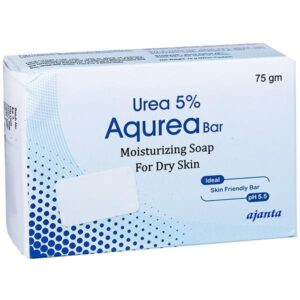UREA
UREA: UREA is a medication that is primarily used topically in the treatment of dry, rough, and scaly skin conditions, such as eczema, psoriasis, and corns or calluses. It is an organic compound that naturally occurs in the body and is also produced synthetically for pharmaceutical use.
The mechanism of action of urea as a skin medication involves its ability to act as a keratolytic agent, meaning it helps to break down and loosen the outer layer of dead skin cells. This promotes exfoliation and helps to hydrate the skin by increasing the water content in the outermost layer of the skin. Urea also has mild antifungal and antibacterial properties, which can be beneficial for certain skin conditions.
UREA is available in various topical formulations, including creams, lotions, ointments, and gels. The specific dose and frequency of application will depend on the strength of the product and the instructions provided by the healthcare professional or the product packaging. Generally, it is recommended to apply a thin layer of the medication to the affected area, and it may be necessary to cover the area with a dressing or bandage, as directed.
Common side effects of using UREA topically are usually mild and include temporary stinging, burning, itching, or redness at the application site. Allergic reactions to urea are rare but may occur, which could result in severe itching, rash, or swelling. If any serious side effects or signs of an allergic reaction occur, it is important to discontinue use and seek medical attention.
It is worth noting that UREA should not be ingested or used on open wounds, broken or irritated skin, or sensitive areas such as the eyes, nose, or mouth. It is always advisable to consult a healthcare professional or pharmacist before using any medications, including UREA.

